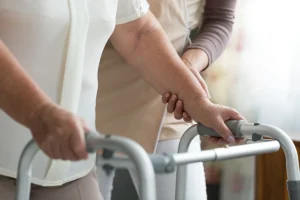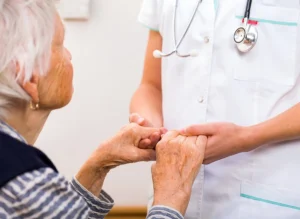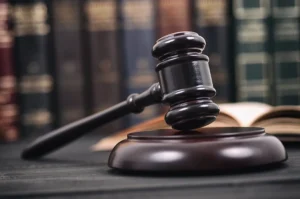Florida Nursing Home Abuse & Negligence Attorneys

If you want to sue a long-term care facility over the abuse or neglect of an aging loved one, it is important that you speak to a Florida nursing home abuse attorney as soon as possible. It is not uncommon for long-term care facilities or caregivers to cover up or destroy evidence of liability, so the longer it takes for your attorney to investigate your case, the more challenging it may be to win.
At Weston & Pape, we can assess your case for free, and if your claim has merit, our team will launch an immediate investigation to gather all available evidence of liability and damages. With many decades of combined experience, our lawyers have a skillset and resources that few law firms possess.
We have recovered several multimillion-dollar settlements and verdicts on behalf of our clients. Call 866-349-2912 to schedule a free case evaluation with one of the leading nursing home abuse lawyers in Florida.
What Questions Will My Florida Nursing Home Abuse Attorney Ask?
Discovering that a loved one may be a victim of nursing home abuse is a deeply emotional and stressful experience. In Florida, where thousands of elderly individuals reside in long-term care facilities, nursing home abuse is, unfortunately, more common than many people realize. If you believe your elderly family member has suffered mistreatment, consulting a nursing home abuse attorney is a critical step toward securing justice and compensation.
Every personal injury case is unique, and your attorney will need to gather as much detailed information as possible to determine whether you have a viable claim. During your free initial consultation, they’ll ask a series of questions designed to understand the situation, establish liability, and assess the potential value of your case.
Below, we’ll walk through some of the common questions a Florida nursing home abuse attorney might ask, explain why these questions matter, and how you can prepare to make the most of your initial consultation.
Why Do Attorneys Ask These Questions?
Before diving into the specific questions, it’s important to understand why your attorney asks them. Nursing home abuse cases can be complex. They often involve reviewing medical records, facility procedures, staff histories, and witness statements. The goal is to build a comprehensive case that proves:
-
Abuse or neglect occurred,
-
The facility or its staff was negligent or abusive,
-
Your loved one suffered harm as a result, and
-
Damages—physical, emotional, or financial—were sustained.
Attorneys ask targeted questions to begin gathering the facts needed to support these elements.
Key Questions Your Attorney May Ask
What was the nature of the abuse or neglect your loved one suffered?
This is typically the first and most important question. Abuse and neglect can take many forms, including:
-
Physical abuse (hitting, slapping, excessive restraint)
-
Emotional or psychological abuse (verbal insults, threats, isolation)
-
Sexual abuse
-
Neglect (lack of proper nutrition, hygiene, or medical care)
-
Financial exploitation
Being as specific as possible helps your attorney begin identifying the type of case and how to approach it. If your loved one suffered more than one form of abuse, be sure to mention all of them.
When did you first suspect nursing home abuse?
The timing of your suspicions plays a major role in the legal strategy. Florida has a statute of limitations for filing nursing home abuse claims, typically two years from the date of discovery. However, exceptions may apply depending on the circumstances.
Your attorney will want to understand when you first noticed warning signs—such as unexplained injuries, sudden behavioral changes, or poor hygiene—and how long the suspected abuse may have been happening.
Was the abuse a single incident or ongoing?
Isolated incidents may be handled differently from long-term patterns of abuse. A single occurrence may point to one negligent staff member, while ongoing abuse could reveal systemic problems within the facility, such as understaffing or poor training.
If the abuse was recurring, your attorney may explore patterns or previous complaints against the facility that could help strengthen your case.
Were you or any other family members ever present when the abuse occurred?
Witnesses can significantly impact the strength of your case. If you, a relative, or even another resident witnessed the abuse firsthand, be prepared to provide names, contact information, and any written statements or photos that could support the claim.
How has your elderly relative suffered as a result of the abuse?
Attorneys need to assess damages—what your loved one has endured physically, emotionally, and financially. These can include:
-
Physical injuries (bruises, fractures, bedsores, etc.)
-
Psychological trauma (anxiety, depression, withdrawal)
-
Medical costs (hospitalization, therapy)
-
Pain and suffering
-
Loss of quality of life
Providing medical records, therapy documentation, or detailed descriptions of how your loved one’s daily life has changed will help quantify these damages.
Did you inform any administrators of the problem, and if so, did they do anything about it?
Notifying the facility is an important part of the process, both for accountability and documentation. Your attorney will want to know:
-
Who you reported the issue to
-
When and how it was reported (in person, email, written complaint)
-
What actions, if any, were taken in response
A facility’s failure to take proper corrective measures could demonstrate negligence and may help establish liability.
Did the facility promise to handle the investigation internally?
Some facilities will assure families that they’re conducting an internal investigation. While this may sound promising, it can also be a tactic to delay or avoid legal consequences.
Your attorney will want to know whether the facility acknowledged the issue and what they claimed they would do about it. Be sure to document any statements or communications you received.
Do administrators know you are pursuing legal action?
If the facility is aware that you’ve contacted an attorney or are considering a lawsuit, they may take steps to protect themselves, such as limiting access to records or coaching staff on how to respond to inquiries.
This question helps your attorney gauge whether the facility might try to obstruct the investigation or if urgent legal measures are needed, such as a preservation of evidence letter.
Have you had any correspondence with the nursing home’s insurance provider?
If you’ve been contacted by the facility’s insurance company or legal team, it’s crucial to let your attorney know. Insurance companies often attempt to settle quickly and for less than a claim is worth.
Your attorney will review any communications to ensure your rights are protected and that you don’t inadvertently say or sign anything that could hurt your case.
Do you have any proof of liability?
Evidence is the backbone of a strong nursing home abuse claim. Examples of proof include:
-
Photos of injuries or unsafe conditions
-
Medical records
-
Witness statements
-
Facility logs or incident reports
-
Video footage, if available
Bring any documents or media you’ve gathered to your initial consultation so your attorney can start building the case immediately.
Do you have any proof of damages?
Along with proving that the abuse occurred, your attorney must show that your loved one suffered harm. This may include:
-
Hospital bills
-
Medication costs
-
Therapy or rehabilitation expenses
-
Expert evaluations
-
Records of psychological distress
The more documentation you can provide, the more accurately your attorney can estimate the potential value of your claim.
Have you spoken to other residents or their families about what is going on?
Patterns of abuse are often uncovered through conversations with others. If multiple residents or their loved ones have shared similar concerns, your attorney may want to speak with them to establish a broader pattern of negligence or abuse within the facility.
In some cases, multiple families may join forces in a class-action or mass tort lawsuit.
Do you have reason to believe that other residents are being abused at the facility?
If you suspect systemic abuse, it may open the door to a wider investigation. Facilities with repeated violations, poor state inspections, or a history of complaints may face enhanced scrutiny under Florida law.
This type of information can significantly strengthen your case and may lead to additional legal action against the facility.
Has anyone in your family posted about the abuse on social media?
While sharing your experience on social media may feel empowering or necessary, it can also impact your case. Defense attorneys and insurance companies often scour public posts for anything they can use against claimants.
Your attorney needs to know what has been shared publicly so they can manage your case effectively and potentially advise you on limiting future posts.
How to Prepare for Your Consultation
Being organized and thorough when meeting with your attorney can significantly impact the strength and success of your nursing home abuse case. The initial consultation is more than just a conversation—it’s the foundation of your legal strategy. Coming prepared allows your attorney to evaluate the situation efficiently, determine whether you have grounds for a claim, and begin building a compelling case on your loved one’s behalf.
Here are several essential steps you can take to prepare for your consultation:
Gather Evidence
One of the most important ways to prepare for your meeting is to collect and organize any evidence that supports your concerns. The more documentation you provide, the clearer the picture your attorney will have of what occurred. Relevant evidence may include:
-
Photographs or videos: These can show visible injuries, unsanitary conditions, or unsafe premises.
-
Medical records: Documentation from hospitals, doctors, or the nursing home’s own medical staff can reveal the extent of physical harm or illness.
-
Incident reports: If the facility recorded any events or filed internal reports, those can serve as valuable evidence.
-
Correspondence: Emails, letters, or text messages between you and the nursing home’s staff or administrators may provide insight into how the situation was handled—or mishandled.
-
Billing records: In cases involving financial exploitation or fraudulent charges, bring any questionable financial documents.
Having this information readily available will help your attorney quickly identify signs of abuse or neglect and begin identifying responsible parties.
Create a Timeline
A clear, detailed timeline helps establish when the abuse or neglect began, how long it persisted, and what steps were taken once it was discovered. Your attorney will rely on this chronology to determine the applicable statute of limitations and uncover gaps or patterns in the facility’s conduct.
Your timeline should include:
-
When your loved one was admitted to the facility
-
The dates when you first noticed concerning symptoms or behaviors
-
When you reported the abuse or neglect, and to whom
-
Any responses or actions taken by the facility
-
Medical visits or hospitalizations related to the suspected abuse
This timeline doesn’t have to be perfect—but even a rough outline can be extremely useful during your initial consultation.
List Witnesses
Witnesses can be critical to proving a nursing home abuse case. Anyone who observed the conditions of the facility or has firsthand knowledge of what occurred can potentially support your claim. These individuals might include:
-
Family members or friends who visited your loved one
-
Other residents who witnessed abuse or neglect
-
Staff members who may have reported incidents internally
-
Former employees who are willing to speak out
Prepare a list of these individuals along with their names, contact information, and a brief note on what they may have seen or experienced. Your attorney can follow up to gather formal statements or arrange interviews.
Avoid Contact with the Facility’s Insurer
If you’ve already reported the suspected abuse, there’s a chance the nursing home’s insurance company may reach out to you directly. They may seem helpful or concerned, but remember—their goal is to minimize the facility’s liability and protect their financial interests.
Avoid providing any statements, signing documents, or discussing the details of the case with the insurer. If you are contacted, politely decline to speak and direct them to your attorney. This prevents you from accidentally saying something that could be used against you later.
Limit Social Media Activity
In today’s digital world, it’s natural to want to share your experiences online. However, it’s important to understand that anything posted publicly—on Facebook, Instagram, Twitter, or any other platform—can potentially be used by the defense to discredit your case.
Even well-intentioned posts expressing frustration or seeking support may be taken out of context. Avoid sharing photos, updates, or commentary about the situation while your case is ongoing. It’s best to stay silent on social media and let your attorney handle communication through official legal channels.
Your initial consultation with a Florida nursing home abuse attorney is the first step in seeking justice and protection for your loved one. The questions your lawyer will ask are meant to uncover the truth, determine the strength of your claim, and build a roadmap for moving forward.
Discuss Your Case with a Nursing Home Abuse Lawyer
If you’re ready to discuss your situation with a nursing home abuse lawyer in Florida, contact Weston & Pape. We have handled a wide array of complicated, high-stakes personal injury and wrongful death claims, and we are ready to give your case the personalized attention it deserves. Call 866-349-2912 or fill out our Contact Form to schedule a free consultation with a nursing home abuse lawyer in Florida.



 Call Us Today
- It's Free
Call Us Today
- It's Free